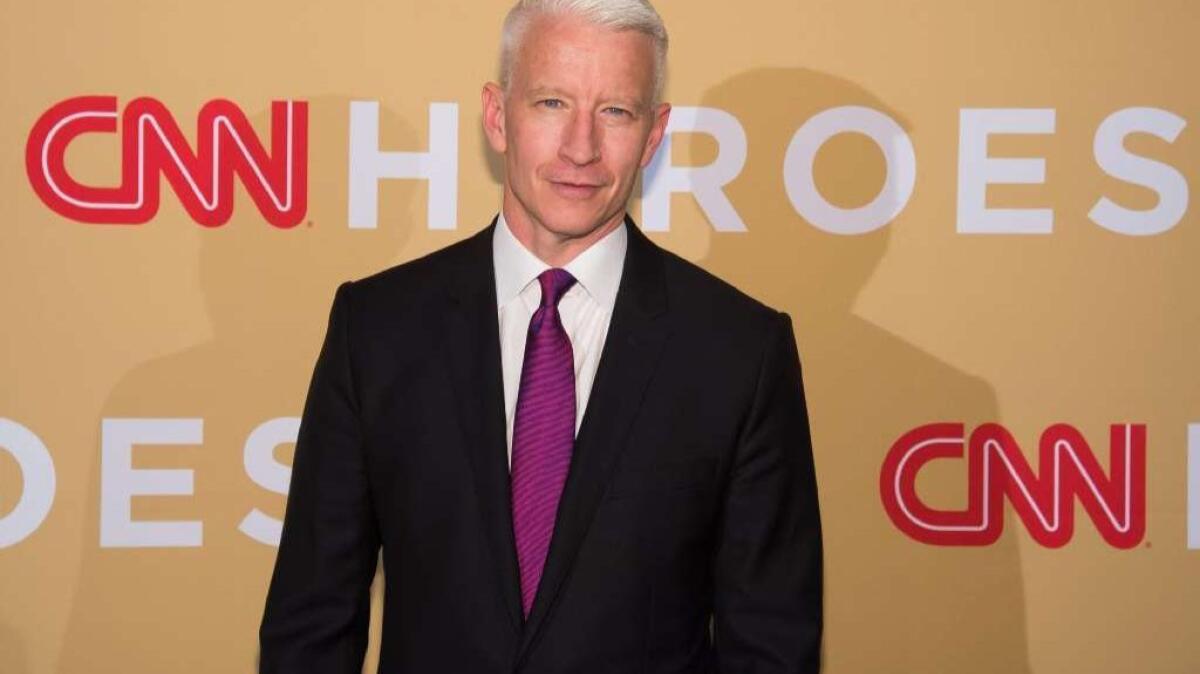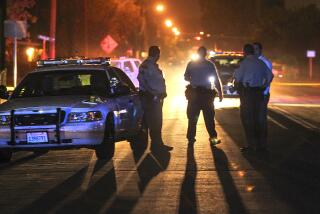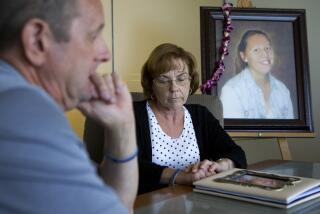Opinion: A mass shooter’s name is part of the story; concealing it is silly and self-important

- Share via
As anyone who has taken a high school journalism class knows, one of the 5 Ws that reporters should be careful to include in the first paragraph of a news story is “who.” Usually that means providing the name of the newsmaker, whether his actions are praiseworthy or vile.
But CNN’s Anderson Cooper won’t tell his viewers the name of the man who shot up a church in Sutherland Springs, Texas, on Sunday, killing 26 people. (His name was Devin Kelley, as readers of the Los Angeles Times know. Kelley’s name appeared in the first paragraph of this chilling profile by Jenny Jarvie.)
If you were watching CNN on Monday night you would have heard Cooper say this: “A short time ago, authorities spoke to reporters. They did not say the killer’s name nor will we.” And later on: “We don’t say the killer’s name. However, we do want to dig deeper into his military background.”
This studied refusal to name names is exasperating on several levels. First, it’s a betrayal of a journalist’s obligation to share relevant facts with his readers or viewers. Second, it reeks of self-importance. The assumption seems to be that the refusal of a TV news celebrity to “dignify” a mass murderer by saying his name is an especially damning condemnation.
This may reflect a larger problem with the self-image of television journalists. Unlike print reporters, TV reporters and anchors seem to see themselves as the conscience of the community, if not the nation, as well as arbiters of virtue. (Cooper is also the co-host of “CNN Heroes: An All-Star Tribute” in which the network salutes “everyday people who are changing the world.”)
After Omar Mateen killed 49 people at the Pulse nightclub in Orlando last year, Cooper read the names of the victims on the air, adding: “We think it is important you hear their names.” But then he explained: “There’s one name you will not hear in the broadcast, one picture of a person you won’t see. We will not say the gunman’s name or show his photograph; it has been shown far too much already.”
No one can object to Cooper putting a higher moral valuation on the victims in Orlando than on the killer, but his refusal to say Mateen’s name wasn’t the decision of a reporter. Reporters don’t withhold information in order to editorialize. (Interestingly, Mateen was named in this report on CNN’s website.)
Granted, there is another argument offered for anonymizing mass murderers: that naming them contributes to their “glorification” and makes them objects of fascination for potential copycats. I’m skeptical, especially if the killer’s actions are receiving copious news coverage otherwise.
There is some academic literature suggesting a causal connection between publicity about school shootings and other sensational multiple murders and “copycat” incidents. For example, a 2014 study by researchers at Arizona State University and Northeastern Illinois University found “significant evidence that mass killings involving firearms are incented by similar events in the immediate past.”
But the study didn’t focus on the issue of reporting that named a killer versus reporting that referred to him as “the killer” but otherwise publicized his crimes. That suggests that any serious attempt to cut down on “copycat” acts of violence would require much more extreme limits on news coverage than not repeating a killer’s name. In this 2012 article, Zeynep Tufekci suggests not only suppressing the names of mass killers (for weeks!) but also refraining from profiling them or interviewing survivors and loved ones.
It’s neither likely nor desirable that news organizations — including CNN — will dramatically scale back their coverage of mass murders or the political debates they engender. Given that fact, refusing to name killers who are at the center of your news coverage seems like moral preening.
Follow the Opinion section on Twitter @latimesopinion and Facebook
More to Read
A cure for the common opinion
Get thought-provoking perspectives with our weekly newsletter.
You may occasionally receive promotional content from the Los Angeles Times.










